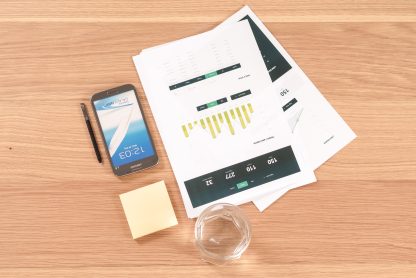Despite the pressure on disposable income, you, as a middle-income consumer, can still save by making easy changes in how you manage your money. Here is how
Rising fuel, food and electricity costs and unchanged interest rates are some of the factors that continue to place significant financial pressure on peoples’ income. Families are still heavily reliant on unsecured debt to get through each month and find it hard to even think about saving. However, by making a few small changes in financial or spending behaviour you can actually free up a significant amount of cash every month. Here are four ways to do that:
Use your rewards: Free rewards programmes can give you great value. For example, customers can pay in eBucks for their in-store purchases at eBucks partners like Checkers, Checkers Hyper, Engen or Dis-Chem. This means you can pay for daily necessities like groceries, fuel and toiletries with rewards programmes like eBucks. Unlike most rewards programmes, eBucks has no membership fee and you earn rewards simply by using your bank account.
Manage your data/airtime spend: telco services such as data and airtime is a big spending item for most people. Most telco providers do offer special deals now and then and it’s important to take full advantage of these if you can generate some savings.
Bank smarter and reduce banking fees: There are numerous ways to bank smarter to reduce bank fees. For instance, using digital banking channels like an APP, self-service ATM or cellphone banking for bank statements, doing payments or checking transaction history is cheaper than going into a branch. You can also save significant amounts by making withdrawals from your own bank’s ATMs.
Consolidate debt to pay a lower interest rate: Consolidating your debt (e.g. clothing account, furniture accounts, micro loans, etc.) into a single loan with lower interest will not only save you on monthly admin fees and help to simplify and ‘declutter’ your debt, but also result in you paying less interest over the term of your loan. These savings can make a big difference in how much you pay every month towards your credit payments. Also, for your nearly paid off loans, start saving that monthly installment in a savings account once you’ve paid off the loan or use that amount to make extra payments toward your other debt.
The Money Management insights, made by FNB, reveal the following around potential savings for consumers across different income groups:
|
Monthly Income |
Potential total monthly savings* |
|
R7 000 – R16 500 pm |
R1 055 |
|
R16 500 – R25 000 pm |
R1 246 |
|
R25 000 – R37 500 pm |
R1 302 |
|
R37 500 – R62 500 pm |
R1 485 |
Words: Doret Jooste, CEO of Money Management in FNB Retail
Source: supplied











